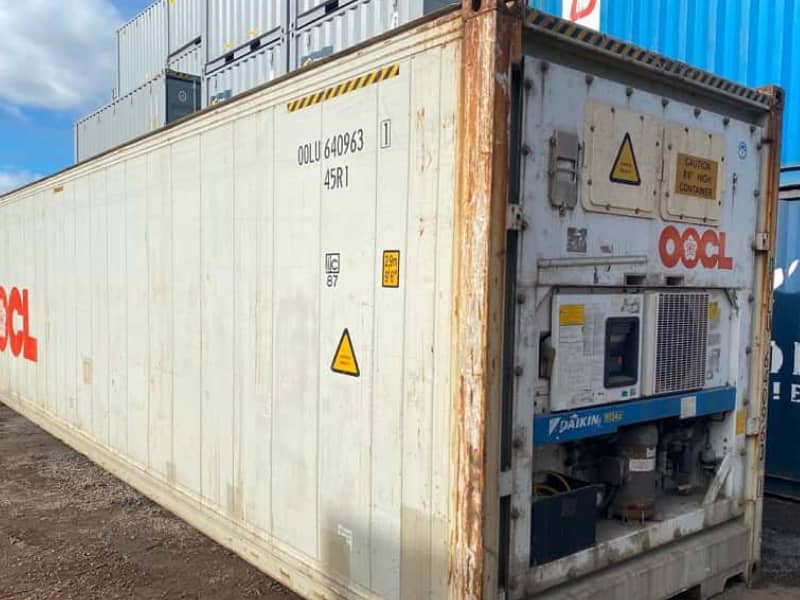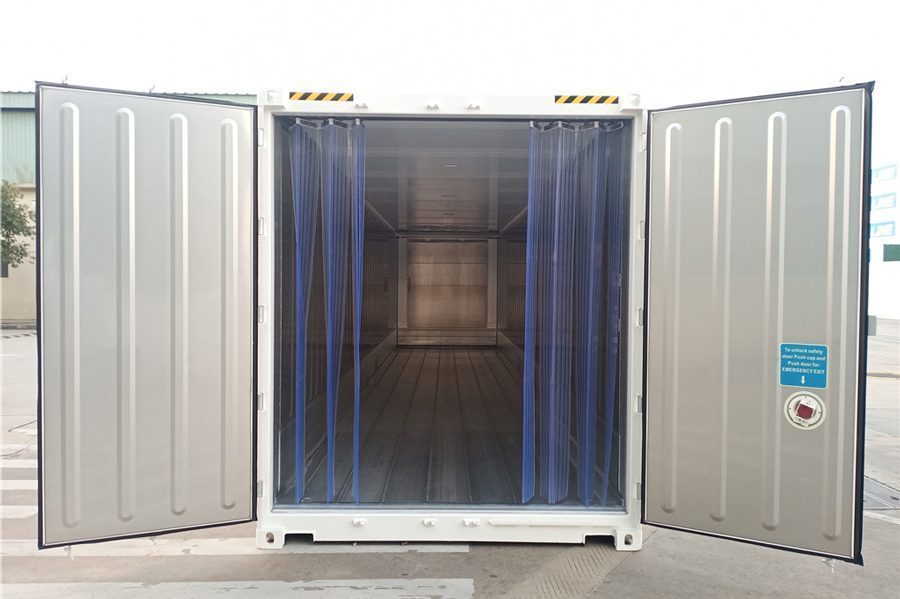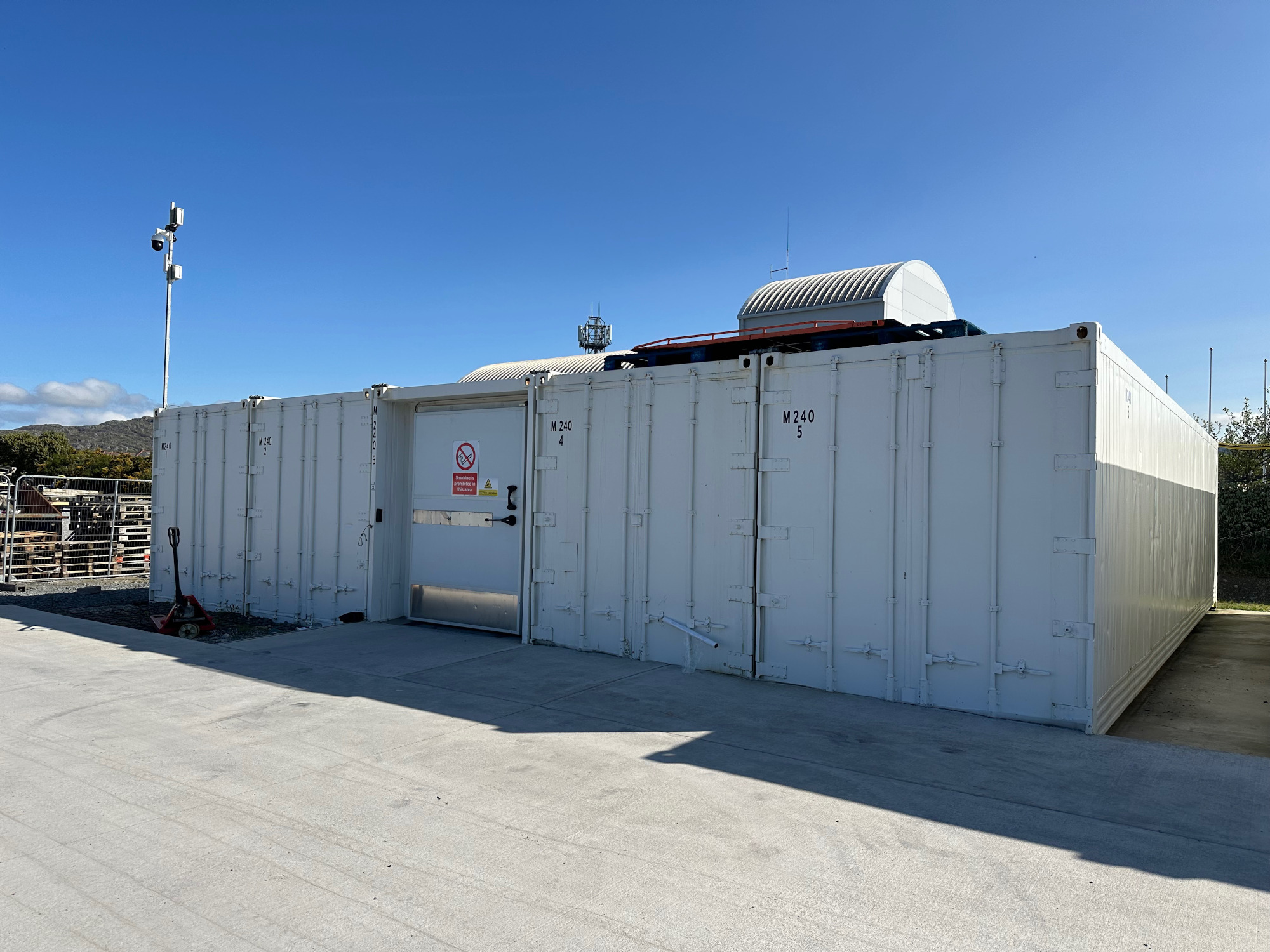All About Freezer Containers: Necessary Insights for Your Storage Demands
Freezer containers play an essential function in the preservation of subject to spoiling products. They come in different forms, consisting of cooled and insulated devices, each created for particular storage space requirements. Recognizing the advantages and key attributes of these containers is necessary for services aiming to maximize their procedures. As the need for efficient storage space remedies expands, exploring the various choices readily available can lead to informed decisions that impact both earnings and sustainability. What variables should one consider when choosing the ideal container?
Sorts Of Cold Store Containers
Cold store containers can be found in various types, each developed to satisfy certain temperature level control demands. Amongst one of the most common types are refrigerated containers, which maintain temperatures between 0 ° C to 10 ° C, making them appropriate for disposable items like fruits, veggies, and milk products. One more type is the deep freezer container, which operates at temperature levels listed below -18 ° C, perfect for lasting storage of frozen products such as meats and seafood.
Shielded containers offer temperature level stability without energetic cooling, making them beneficial for temporary transport of temperature-sensitive products. Additionally, there are portable cold storage space devices, which supply adaptability in areas and are often utilized in events or seasonal operations. Finally, blast refrigerators quickly minimize the temperature of hot foods, guaranteeing safety and top quality. Each type offers an one-of-a-kind objective in numerous sectors, from food solution to pharmaceuticals, emphasizing the importance of choosing the appropriate container for details storage space demands.

Advantages of Using Cold Storage Space Solutions

Cool storage solutions prolong the shelf life of products, decreasing waste and increasing earnings for companies. By successfully handling inventory with appropriate temperature control, business can optimize their supply chains and improve functional performance.
Additionally, cold store centers enable adaptable storage alternatives, fitting numerous volume requirements and seasonal fluctuations popular (used 40ft refrigerated shipping containers). This adaptability aids businesses react promptly to market modifications
Last but not least, employing cold store solutions can ensure conformity with health and safety regulations, protecting both customers and companies. On the whole, the strategic use cold store improves item administration while advertising sustainability and financial stability.
Key Features to Search For in Cold Store Containers
When choosing freezer containers, a number of essential features advantage mindful factor to consider to safeguard peak efficiency and integrity. Initially, temperature level control capacities are crucial; containers need to keep regular temperature levels appropriate for certain products. Insulation quality also plays a significant role, as superior insulation reduces power intake and improves temperature level security.
Next off, simplicity of gain access to and loading is essential; containers need to offer straightforward layouts for reliable handling and organization. Longevity is an additional vital aspect; weather-resistant products guarantee longevity and safeguard components against ecological aspects.
Furthermore, mobility attributes, such as built-in wheels or raising points, facilitate transportation, while customizable formats enable for tailored storage services.
Checking systems, including temperature alarm systems and remote tracking, supply real-time updates, making certain that problems continue to be suitable. By focusing on these functions, customers can select cold store containers that satisfy their operational demands efficiently.
Picking the Right Freezer Container for Your Demands
Choosing the ideal cool storage container calls for a thoughtful assessment of functional demands and details demands. Elements such as the kind of items being saved, temperature sensitivity, and quantity needs to be prioritized. For circumstances, subject to spoiling food items may demand containers with stringent temperature controls, while drugs might call for precise conditions to preserve efficiency.
In addition, potential individuals must consider the container's dimension and movement. A bigger device may be essential for bulk storage, while smaller, portable alternatives can be ideal for on-site or temporary needs. Insulation quality and power efficiency are additionally crucial, as these will certainly influence functional expenses and temperature stability.
Compliance with industry regulations and standards is essential, particularly in industries like food and healthcare. By thoroughly assessing these elements, users can choose a cold storage container that efficiently meets their unique demands and warranties optimum storage space problems.
Best Practices for Maintaining Freezer Conditions
Maintaining optimal cold store conditions is important for protecting the quality and security of temperature-sensitive items. Consistently monitoring temperature level and humidity degrees is essential; using reputable digital thermometers and hygrometers can supply precise readings. In addition, correct insulation of freezer containers helps decrease temperature level changes and power loss.
Executing a first-in, first-out (FIFO) system guarantees that older inventory is made use of before more recent supply, decreasing waste (used 40ft refrigerated shipping containers). In addition, maintaining an organized design within the storage room permits far better airflow and lessens the threat of cross-contamination
Routine maintenance examine tools, such as compressors and seals, are essential to avoid malfunctions. Team training on ideal practices for loading and discharging products assists preserve temperature level honesty. Maintaining doors shut as much as feasible limitations warmth exchange, assuring that the cool storage space environment remains stable and efficient in protecting useful products.
Cost Factors To Consider for Cold Storage Space Solutions
When assessing freezer solutions, it is important to think about the first investment expenses along with recurring functional expenditures. A detailed failure of these costs can reveal significant long-term savings potential for businesses. Understanding these financial aspects assists stakeholders make informed choices regarding their cold storage needs.

First Financial Investment Prices
The economic landscape of cool storage space containers provides different preliminary investment costs that businesses must consider. These costs generally consist of the purchase or rental cost of the containers, which can vary based upon size, insulation, and kind high quality. Furthermore, costs associated to retrofitting existing structures to accommodate cold storage space needs to be factored in, especially if specialized devices is needed. Installation prices, including electric job and refrigeration check this site out systems, likewise contribute to the total first more tips here financial investment. Businesses need to not forget transport expenses for providing containers to their desired location. Prospective personalization options, such as shelving or temperature level surveillance systems, can better influence the first monetary outlay. Mindful budgeting for these factors is important for successful cold store implementation.
Functional Expenses Break Down
Operational costs for cold store solutions incorporate several essential expense factors to consider that businesses need to navigate. Key variables include power prices, which can be considerable due to the need to preserve reduced temperatures. Maintenance costs are additionally significant, as routine maintenance is vital to ensure tools runs efficiently and stays certified with health and wellness requirements. Furthermore, labor prices might emerge from the need for specialized personnel to keep an eye on the storage space and handle setting. Insurance expenditures are one more factor to consider, as click site business should shield their financial investments against prospective losses. Any potential governing conformity costs have to be factored in, as companies may require to spend in systems that stick to food security and environmental policies. Understanding these costs is essential for efficient budgeting.
Long-Term Financial Savings Prospective
Spending in chilly storage solutions supplies substantial long-term financial savings capacity, transforming initial expenses right into monetary efficiency over time. By reducing spoilage and waste, companies can boost their profit margins considerably. Advanced insulation and energy-efficient systems lower utility expenses, which accumulate over the lifespan of the equipment. Cool storage containers often need less regular upkeep compared to typical refrigeration techniques, leading to reduced repair work expenditures. The ability to shop items for prolonged durations without jeopardizing quality enables organizations to utilize on market changes, maximizing income. In addition, the scalability of cold store solutions allows firms to adapt to altering needs without incurring too much costs. On the whole, these variables contribute to an engaging situation for cool storage as a cost-efficient investment strategy.
Often Asked Questions
How Much Time Can Food Be Saved in Cold Store Containers?
The period food can be stored in freezer containers differs by kind. Typically, disposable products last from days to weeks, while icy foods can continue to be secure for months, depending on proper temperature and storage conditions.
Are Cold Storage Space Containers Energy-saving?
The power performance of cold store containers varies based upon design and insulation quality. Modern units frequently use sophisticated innovation to lessen power usage, inevitably adding to lowered functional prices and ecological influence in lasting usage.
Can Cold Storage Space Containers Be Custom-made for Certain Needs?
Cold store containers can undoubtedly be personalized to fulfill details demands. Modifications might include temperature controls, size adjustments, and added features, allowing individuals to customize remedies successfully for different storage requirements and operational preferences.
What Are the Usual Sizes of Cold Storage Space Containers?
Cold store containers commonly can be found in common sizes such as 10, 20, and 40 feet. These dimensions fit numerous storage needs, making certain adaptability for organizations requiring temperature-controlled settings for sensitive materials or subject to spoiling items.
Do Cold Store Containers Require Special Licenses for Use?
Freezer containers often call for unique authorizations for usage, depending upon regional guidelines and intended applications. Authorities might mandate licenses to guarantee safety and security standards, ecological compliance, and proper functional practices are kept during their application.
Cold storage containers come in various kinds, each made to satisfy details temperature level control demands. In addition, chilly storage space facilities enable for adaptable storage choices, suiting various volume demands and seasonal fluctuations in need. Picking the best chilly storage space container requires a thoughtful evaluation of specific requirements and operational demands. The economic landscape of chilly storage containers provides various first investment costs that businesses need to think about. Cold storage containers can indeed be tailored to fulfill details demands.